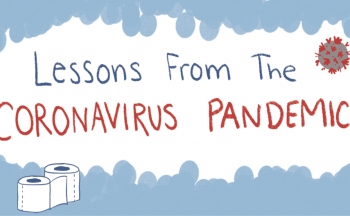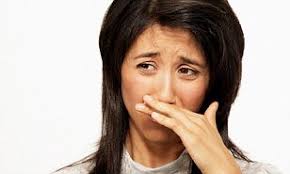 September 2020
September 2020
After months of COVID-related closures, restrictions and changes communities are looking at when and how to re-open. They are deciding what, if anything, needs to change.
When to Re-Open Amenities
The requirement to close amenities was based on a provincial Emergency Order. Once the Emergency Order has been lifted, communities should be re-opening all amenities when it is possible to do so in accordance with whatever restrictions are mandated.
Some may choose to maintain all COVID-imposed restrictions and policies. Others will eliminate them. The majority we hope will strike a sustainable balance based on practicality, safety and cost. Better decisions will be made by communities that understand what measures are effective and what measures simply make people feel good.
The current science behind COVID transmission
The science of COVID virus transmission has and continues to change based on available information, and often differs from belief and perception. When we first became aware of COVID, measures for reducing risk of virus transmission were based on misinformation, misinterpretation of data and belief rather than science. Little has changed despite new and developing information. There is a growing consensus that, for reducing the risk of COVID transmission, surface contamination and short encounters are of less concern than extended person-to-person interactions.
Experts suggest that COVID is unlikely to transmit off surfaces. Disinfecting groceries, wiping down packages, and cordoning off playgrounds all appear to be ineffective. To date there have been “no specific reports” of COVID transmission off surfaces known to be contaminated. Emanuel Goldman, microbiology professor at the New Jersey Medical School of Rutgers University, published an article in The Lancet journal stating the risk of COVID-19 infection from surfaces is “exaggerated.” In an interview with CBC News he stated “This is not a significant risk … Not even a measurable risk.” According to Erin Bromage, associate biology professor at the University of Massachusetts Dartmouth and infectious disease researcher, surfaces are “probably associated with a few percentage of transmissions, probably at the highest, which is a lot lower than what we find, say, for influenza – but it seems to be not a major driver with this particular pathogen.”
Dr. Isaac Bogoch, infectious disease physician at Toronto General Hospital, states “The vast majority of transmission seems to be through close contact with an infected individual, primarily in an indoor setting.”
Wearing of gloves is understood to do more harm than good. Infectious disease specialist Dr. Zain Chagla, associate professor at McMaster University in Hamilton, comments that “Going to the grocery store wearing a pair of gloves is probably not the cleanest thing to be doing.” He explains that wearing gloves for extended stretches and touching objects can lead to cross-contamination the longer you’re wearing them, and is less helpful than just washing or sanitizing your bare hands regularly.
Hand hygiene remains most important. Cleaning and disinfection measures are less important to preventing COVID but helpful in preventing other forms of virus transmission. When it comes to disinfecting, according to Dr. Bogoch, “It’s not hurting anybody, but it’s just not necessary.”
What changes, if any, are to be considered
General Cleaning
Maintaining a heightened and visible level of cleanliness is always beneficial and deters all types of virus infection.
- More frequent cleaning of touch points; points of contact in common areas most frequently handled or touched. In the most public areas this includes door handles, elevator buttons, light switches, door opening buttons and push plates, buzzer systems, and hand rails. Other spaces include washroom toilets, faucets and sinks, and exercise equipment.
- Cleaning supplies that smell good and avoiding products because someone has an allergy should be unacceptable unless alternatives are equally effective.
- Mailrooms require more attention. Mailboxes should be cleaned and disinfected along with touch points. Paper, including flyers and magazines, when allowed in these areas facilitate transmission of infectious viruses.
- Pet waste should never be allowed on indoor or outdoor common areas. Services available for minimizing pet waste include regular area cleanups, provision of waste bags and receptacles, and pet dna services.
Specific spaces that, at a minimum, warrant daily cleaning and sanitizing:
- Door handles, elevator buttons, light switches, door opening buttons and push plates, buzzer systems, and hand rails
- Washroom toilets, faucets and sinks
- Exercise equipment
- Office, concierge and common area workstations, desks, phones, keyboards and computer mice
- Smartphones and other communication devices
Common Areas
Common areas include exercise space, card and reading rooms, and study space. Residents can be encouraged to provide their own cleaning wipes or supplies can be provided so residents can wipe down areas before and after use.
Residents can be encouraged to take basic precautions which include:
- Regularly wash hands and utilize hand sanitizer
- Wipe down public seating, tables and exercise equipment before and after use
- Properly dispose of waste
- Avoid spitting on the ground on sidewalks, in parking garages and hallways
Elevators
High-rise communities were never intended to function without elevators nor were elevators designed for single occupant use. COVID may have elicited an extreme reaction in these spaces. Suggesting that residents police themselves by restricting elevator use to one person or family at a time may have inadvertently caused unnecessary conflict. On the way down those on higher floors have priority when elevator access is restricted. Those on lower floors can be waiting twenty minutes or longer before an empty elevator comes along while those on higher floors are serviced in minutes. As nobody has been able to trace a single COVID infection to elevator use such restrictions appear unwarranted.
Find Vendors in these Related Categories
- Accessibility Products
- Cleaning & Janitorial Services
- Cleaning Services - Carpets
- Cleaning Services - Ducts
- Cleaning Services - Windows
- Condo Communications
- Condo Management
- Condo Software - Management Software, Electronic Voting and more
- Education & Recreation
- Landscaping and Gardening Services
- Parking Management/Cleaning Services
- Recreation and Fitness
- Waste Services







